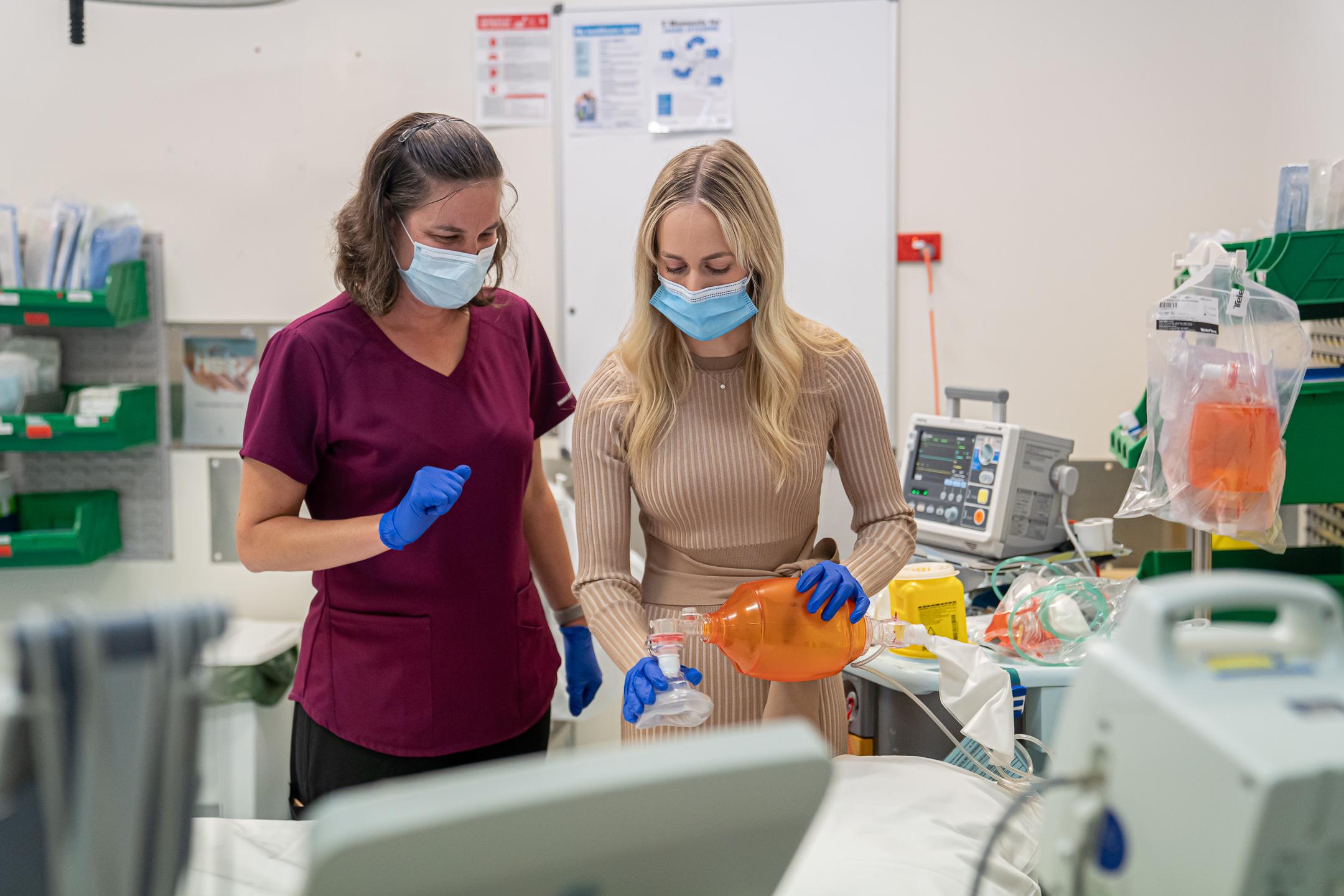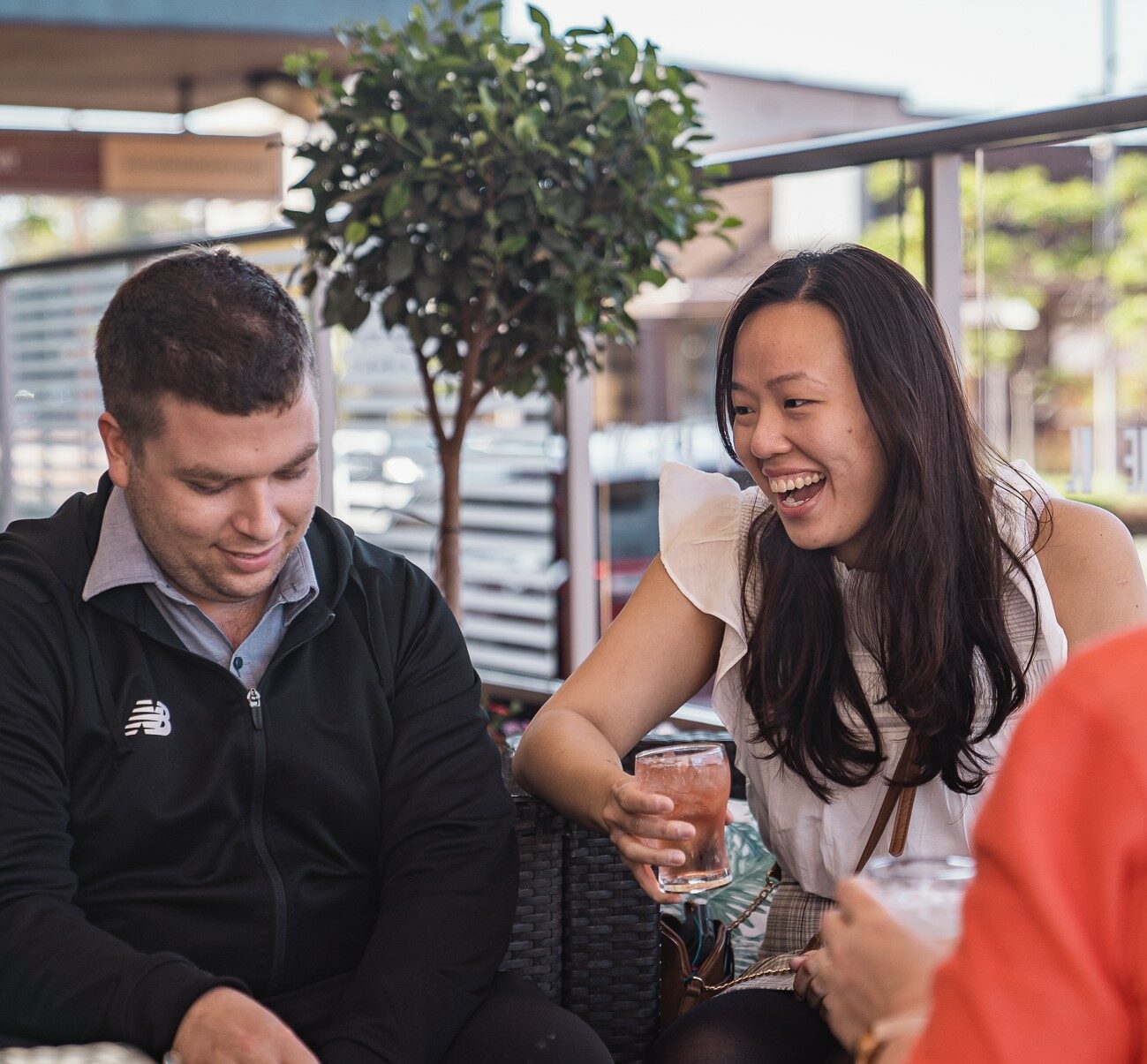Sign up now to the RGPSA
Medical Trainees on the rural pathway and final year medical students looking to go rural are encouraged to sign-up to access our range of supports and services.
Dr Kellie Mibus & 2021 Road to Rural Intern Dr Sarah Miller at the Waikerie Health Service
Why train rural?
When you train in rural or remote South Australia you will experience a number of benefits including:
- more one on one supervision
- train to full scope of practice in a supported environment
- greater exposure to hands on tailored training to your individual needs
- greater breadth and depth of skill development
- contextualised skill development
Develop your clinical courage
Another aspect of training in rural is the development of clinical courage that is an essential skill for those working in rural and remote areas. Clinical courage stems from a sense of belonging to the community of which you are a part, acceptance of clinical uncertainty, knowing the limits of your clinical practice and having the ability to contextualise and marshal resources to meet clinical need.
Practice socially accountable medicine
Rural generalists and rural generalist trainees training in rural, support the establishment and maintenance of both a strong primary and secondary rural health care system that provides better population health and distribution (equity) and improved economy in the use of resources. Communities see enhanced viability of rural general practice that then in turn supports the delivery of local hospital services and improved specialised services.
Communities also experience increased quality and range of medical services that are provided locally to meet community need. A stronger primary care system prevents illness and maintain the good health of our communities reducing the burden on hospitals and other medical resources.
Access supports and services to guide your journey to becoming a rural generalist
By signing on to the rural pathway in South Australia, trainees will be able to access a range of benefits and services that will ensure a supported journey to becoming a rural generalist through either ACRRM or RACGP, that will continue into Fellowship. A number of these supports are still in development and will be available shortly.
| Available | Medical Students | Interns | PGY2+ | GP Training | Fellowed GPs | |
| Career navigation and advice | Yes | ♦ | ♦ | ♦ | ♦ | ♦ |
| Case management and support | Yes | ♦ | ♦ | ♦ | ♦ | ♦ |
| Mentoring | Yes | ♦ | ♦ | ♦ | ♦ | ♦ |
| Access to rural education and training program including scholarships and funding for short courses |
Yes | ♦ | ♦ | ♦ | ♦ | |
| Support to apply for RACGP or ACRRM | Yes | ♦ | ♦ | |||
| Access to advanced / additional skills training | Yes | ♦ | ♦ | ♦ | ||
| Skills consolidation support and grants | Yes | ♦ | ♦ | ♦ | ||
| Rural generalist community, networking and events | TBA | ♦ | ♦ | ♦ | ♦ | |
| Alumni | TBA | ♦ |
Dr Joseph Snyder & Dr Natalie Lee in Whyalla
How to access supports
To access the supports offered by the RGPSA you will need to register with us by completing the sign-up form and an annual training placements form. The data collected on our pre-vocational doctors through this process informs the National Rural Generalist Pathway through the Commonwealth Government’s Department of Health to assist in national health workforce planning initiatives by tracking trainees coming through the training pipeline. The two GP Colleges, ACRRM and RACGP also participate in this data collection.
Eligibility
- Medical students in the last two years of medical school who are interested in pursuing a rural generalist career and transition to rural training
- Aboriginal and Torres Strait Islander medical students at any level who are interested in exploring the rural generalist pathway and transition to rural training
- Junior doctors, TMOs and registrars on the rural generalist pathway or wanting to explore the rural generalist pathway
- Fellowed GPs wanting to train to be a rural generalist
What happens through the sign up process?
- Complete the RGPSA Sign-up form and submit
- RGCU will contact the trainee to set up a career discussion meeting and completion of the annual Training Placements Form
- Thereafter, the trainee will complete the Training Placements Form annually and meet with the RGCU to discuss their ongoing education and training needs and career options
- Trainee may utilise or apply for the above supports and grants.
Applications for any of the RGPSA grants and scholarships are subject to a separate eligibility and assessment process and funding availability. Read the relevant guidelines for each grant / scholarship for further information. - Trainee’s may deregister at any time.





